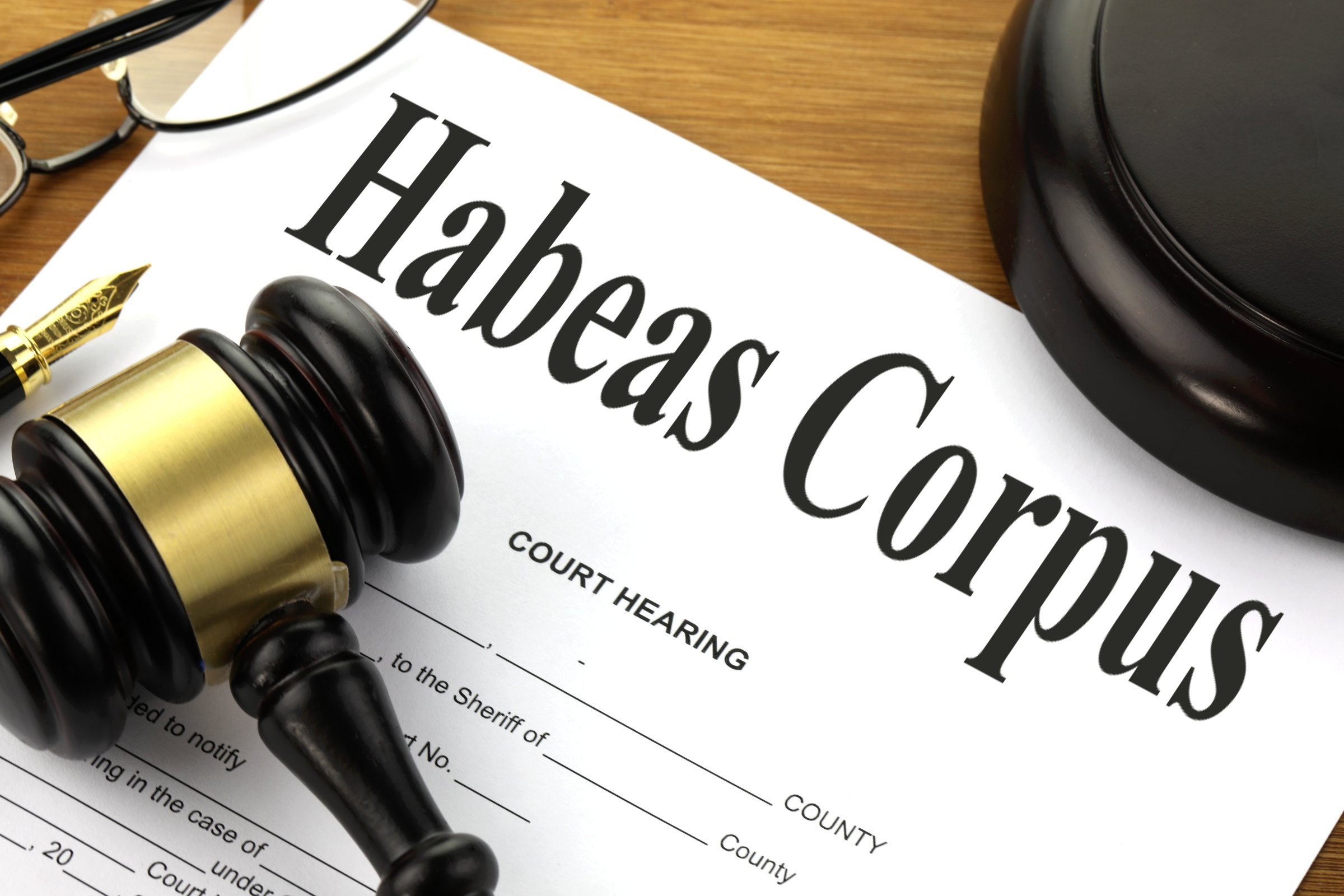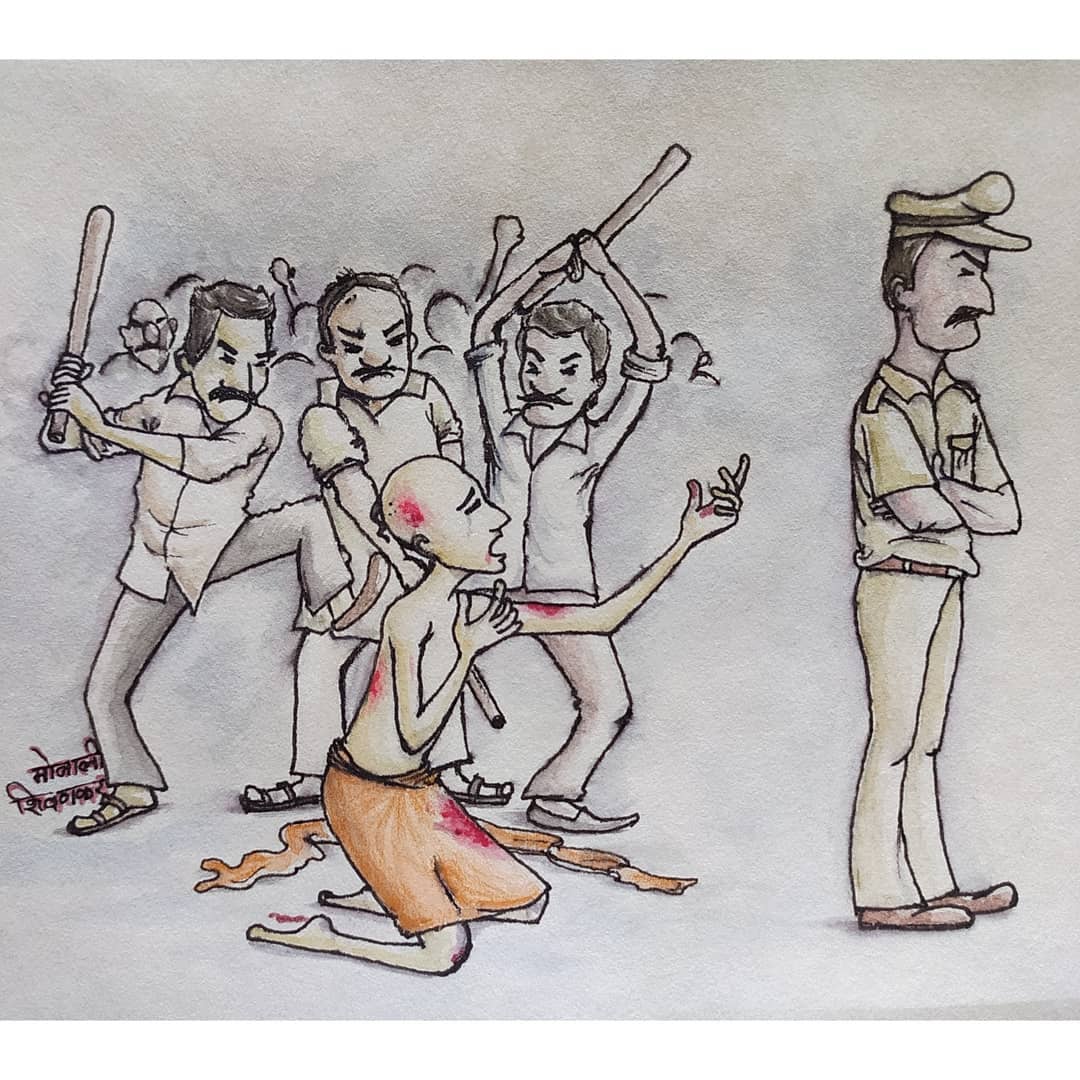Introduction
Our Indian Constitution has provided various rights in its III part to ensure a decent standard of living and promote well being among all of its citizens subject to some reasonable restrictions. Right to remedy is one of such rights if any of the ensured rights is infringed. Any person may move to the Supreme Court or High Court for the enforcement of the rights guaranteed, Same court may issue directions, orders and writs.
If A has been wrongfully arrested/detained by B, a police officer on accusation of an offense committed. A, Using the remedy available may move to the Supreme Court or High Court regarding the same. the Court may summon B with A and ask the grounds for detaining/arrest of A. If B fails to provide a valid ground or justification for A’s detention. The high court may direct the B to immediate release of A.
Types of writ petition issued under article 32 and 226 of the constitution of india
The Writ of habeas corpus
Habeas Corpus is a Latin word which means ‘to have the body of’. It is an order issued by the court to a person/ or state who has detained another person, to produce the body of the latter before it. The court then examines the cause and legality of detention.
The Writ of Mandamus
The literal meaning of the word ‘mandamus’ is to command. This prerogative remedy of mandamus is used for enforcing the performance of public duties by public authorities of all kinds
The Writ of Prohibition
The writ of prohibition literally means ‘to forbid’. It is issued by a higher court to a lower court or tribunal to prevent the latter from exceeding its jurisdiction or usurping a jurisdiction that it does not possess.
The Writ of Certiorari
A writ of certiorari is a formal order issued by a higher court, usually an appellate court, to a lower court or tribunal, instructing them to submit the entire record of a case for review. This legal procedure allows the higher court to review and potentially overturn the lower court’s decision
The Writ of Quo-Warranto
Quo Warranto is a Latin term that translates to ‘By what authority or warrant’ in English. It refers to a legal action or writ that challenges a person’s right to hold a public office, position, or franchise. It is typically used to question the legal basis or authority under which someone occupies a particular position or exercises certain powers
Meaning of Habeas Corpus
The writ of habeas corpus is one of the major writ issued by the High courts under article 226 of the of Indian Constitution whereas power of Supreme Court to issue certain writs whenever the fundamental rights of the citizens are violated or any of the rights of the citizens are violated, and article 32 of the constitution of india which is also known as the heart and soul of constitution. The right to move the Supreme Court by appropriate proceedings for the enforcement of the rights conferred by this Part is guaranteed.
The word habeas corpus is derived from the Latin phrase, meaning literally “you should have the body,” used as the opening words of a legal order to jailers to bring the prisoner to court
-
- a legal order for an inquiry to determine whether a person has been lawfully imprisoned.
-
- the right of a citizen to obtain a writ of habeas corpus as a protection against illegal imprisonment
Habeas corpus ad-subjiciendum is an extraordinary remedy, and is by far the most frequently used writ of habeas corpus. It is an independent civil action and a form of collateral attack to determine not the guilt or innocence of the person held in custody.
By this writ, the Court directs the person or authority who has detained another person to bring the body of the prisoner before the Court so as to enable the Court to decide the validity, jurisdiction or justification for such detention. The principal aim of the writ is to ensure swift judicial review of alleged unlawful detention on liberty or freedom of the prisoner or detenu
A writ of habeas corpus may be prayed in case of actual detention or imprisonment of a person if it is illegal or unconstitutional. But if a person is not actually detained, obviously a writ of habeas corpus would not lie. A question, however, may arise whether in such an eventuality, no remedy at all is available to an aggrieved person against whom an order of detention has been made and such order is still to be executed. In other words, whether actual detention of a person against whom an order of detention is made is sine qua non or condition precedent for approaching a Court of Law.
Who may file the writ of habeas corpus
-
- The person or on his behalf who is confined or detained illegally.
-
- The person who is aware of the benefit of the case that may lead to.
-
- The person who is familiar with the facts and circumstances of the case and willingly files an application of the writ of habeas corpus on behalf or for the person so illegally detained or arrested under article 32 and 226 of the Indian constitution.
On what grounds the writ of habeas corpus may be rejected
The writ of habeas corpus is a fundamental right under the Constitution of India, and is designed to protect rights of personal liberty individuals from unlawful detention. However, there are specific grounds on which a petition for habeas corpus may be rejected
-
- Lawful detention: where the court has the reason to believe that the person so detained is lawful.
-
- Jurisdiction: the writ of habeas corpus also may be rejected due to no-jurisdiction of the court.
-
- National security and public safety: the court may also reject the writ where it is found that on release of the accused person and detention is deemed to have been done for the national security and public safety.
-
- Res-judicata: If the matter has already been adjudicated upon by a competent court and a final judgment has been rendered, the doctrine of res-judicata may apply, preventing the same issue from being heard again.
-
- Non-Disclosure of Material Facts: If the petitioner fails to disclose all material facts or misrepresents of information has been found, the court may reject the petition on the grounds of non-disclosure or misrepresentation.
-
- Preventive detention: Article 22 also addresses the issue of preventive detention, which allows the authorities to detain individuals for preventive reasons, such as the maintenance of public order or national security. It imposes certain additional safeguards, such as the requirement for the grounds of detention to be communicated and the provision for a review by an advisory board.
It’s important to note that Article 22 provides certain exceptions during times of emergency, such as during a proclamation of Emergency by the President of India. In such circumstances, certain restrictions on the rights and safeguards under Article 22 may be imposed.
Important cases of writ of habeas corpus
Nilabati Behra v. The State of Orissa
In Nilabati Behra v. The State of Orissa the petitioner’s son aged 22 years was detained by police for an interrogation of the offense of theft, later on his dead body was found on a railway track, the defendant argued that petitioner’s son managed to escape from the police custody. however the honorable supreme court held that The petitioner shall be awarded a compensation for Rs. 1,50,000, also held that prisoners or under-trials are not denuded of their fundamental rights under Article 21 and It is only such restrictions, as are permitted by law, which can be imposed on the enjoyment of the fundamental rights by such persons. It is an obligation of the State, to ensure that there is no infringement of the fundamental rights of a citizen to life, except in accordance with law while the citizen is in its custody.
A.K. Gopalan vs The State Of Madras.Union Of India
In A.K Gopalan Vs The state of Madras.Union Of India, The petitioner was detained under the preventive detention act of 1950 the petitioner sought the relief through article 32 and applied the habeas corpus, The court Held that if a legislature restraints a person from his personal liberty should be competent enough to make such law in the first place hence Section 14 of the Preventive Detention Act, 1950, contravenes the provisions of the Constitution in so far as it prohibits a person detained from disclosing to the Court the grounds on which a detention order has been made or the representation made by him against the order of detention, and is to that extent ultra vires and void.
Sheela Barse vs State Of Maharashtra
In the above case the petitioner, a journalist, in her letter addressed to this Court stated that Five out of fifteen women prisoners interviewed by her in the Bombay Central Jail alleged that they had been assaulted by the police in the police lock-up and two of them in particular alleged that they had been assaulted and tortured in the lock-up the petitioner file the writ of habeas corpus opting article 32 of the constitution.
Disposing of the petition the court gave the following directions: Legal assistance to a poor or indigent accused, arrested and put in jeopardy of his life or personal liberty, is a constitutional imperative mandated not only by Article 39A but also by Articles 14 and 21 of the Constitution.
The writ of Habeas Corpus post enactment of BNSS 2023
Since the recent amendment to the certain provision of the Crpc and renaming it to Bhartiya Nagrik Suraksha Sanhita (BNSS) 2023 most importantly the powers of police to investigate have been given more priority than that of fundamental rights of citizens.
When investigation can not be completed within within the period of twenty-four hours fixed by Section 57 Crpc
Section 167(2) of the Crpc states that, The Magistrate to whom an accused person is forwarded under this section may, whether he has or has not jurisdiction to try the case, from time to time authorize the detention of the accused in such custody as such Magistrate thinks fit, for a term not exceeding fifteen days in the whole; and if he has no jurisdiction to try the case or commit it for trial, and considers further detention unnecessary, he may order the accused to be forwarded to a Magistrate having such jurisdiction.
When investigation can not be completed within within the period of twenty-four hours fixed by Section 58 BNSS
Section 187. (2) The Magistrate to whom an accused person is forwarded under this section may, irrespective of whether he has or has no jurisdiction to try the case, after taking into consideration whether such person has not been released on bail or his bail has been canceled, authorize, from time to time, the detention of the accused in such custody as such Magistrate thinks fit, for a term not exceeding fifteen days in the whole, or in parts, at any time during the initial forty days or sixty days out of detention period of sixty days or ninety days.
Writs during emergency
Article 352 of our constitution provides for a declaration of emergency. Under Article 358, on a declaration of emergency, the fundamental rights guaranteed by Article 19 stand suspended. Furthermore Article 359 of the Constitution, as originally enacted, provided that when a Proclamation of Emergency was in operation, the enforcement of any fundamental right may be suspended by the issue of a Presidential Order.
ADM jabalpur Vs Shivakant Shukla
In the above case also known as the habeas corpus case In the view of the presidential order dated on 27th June, 1975, it was held that no writ petition can be moved in the HC under Art.226 for habeas corpus or any other writ or and other order or direction challenging the detention order on the ground that either the detention is not fulfilling the Act or that the Act is illegal or is based on extraneous conditions or is vitiated by malafide action of any kind. Further it was held that during the proclamation of emergency under Art. 359 (1) of the Indian Constitution no person whether Indian citizen or a foreigner shall have a right to move the court for the enforcement of fundamental rights except Arts. 20 and 21. These rights shall remain suspended during the period of proclamation or for a period which is shorter as prescribed in the order. Hence, during the time of emergency rights provided under article 32 shall also remain suspended.
Role of 44th Amendment during emergency
The 44th amendment act was introduced in 1978, this act also nullified the provisions that were brought into the constitution of India during the 42th amendments. The 44th amendment was aimed at focusing the adequate safeguards of fundamental rights as follows
-
- The right to liberty is further strengthened by the provision that law for preventive detention cannot authorize, in any case, detention for a longer period than three months, unless an Advisory Board has reported that there is sufficient cause for such detention.
-
- An emergency can be proclaimed only on the basis of written advice tendered to the President by the Cabinet.
Conclusion
From the above cases and judgments say that the writ of habeas corpus remains a cornerstone of individual liberty and a fundamental aspect of the legal system, protecting citizens from unlawful detention. Its significance lies in its ability to serve as a vital check on executive power, ensuring that any deprivation of personal freedom is justified and lawful. However, as discussed, the writ is not absolute and may be denied under certain conditions such as lawful detention, lack of jurisdiction, or procedural errors.
However it’s interesting to see how the courts and the scope of habeas corpus plays the role to protect the rights of citizens as enshrined in the constitution after the police custody and the power of police to investigate has been given priority under the new BNSS.
As we navigate the complexities of modern legal frameworks, it is crucial for both legal professionals and the public to stay informed about the nuances of habeas corpus. Awareness and understanding of this powerful legal remedy empower individuals to assert their rights and contribute to a more just society.
References
RELATED POSTS
View all
Mob Lynching: Relevant Laws And Its Consequences For India
July 14, 2024 | by Team FeenLegal
Scope and Protection of Creative Works under copyright act 1957
August 20, 2024 | by Team FeenLegal




